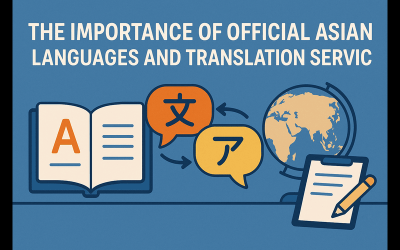There are roughly 150 million native speakers, and another 260 million speakers who use Russian as a second language. In fact, Russian is part of a huge network of speakers all over the world. Speaking Russian extensively besides Russia includes countries in the former Soviet Union and portions of Eastern Europe.
Is Russian a Difficult Language to Learn?
Many people find Russian to be a difficult language to learn. This is attributed to its complicated grammar, first of all, and specific alphabet – Cyrillic. It has six cases in its grammar, making it even more complicated. The rich phonetics also makes it a problem for many who are learning pronunciation. Until one attains fluency, resorting to Russian translation services may be appropriate.
Languages Similar to Russian
Russian belongs to the Slavic language family, and it shows quite many features common to other Slavic languages:
Ukrainian
This is also an East Slavic language, very close to Russian, with a large number of common words and almost similar grammar, though there are phonetic and lexical differences.
Belarusian
Another representative of the East Slavic languages is Belarusian. It has much in common with Russian both in vocabulary and grammar.
Bulgarian
This is a South Slavic language and partially resembles Russian in vocabulary and structure but still retains some other letters from the Cyrillic alphabet.
Serbian and Croatian
Also South Slavic, these languages have some grammatical and lexical similarities with Russian but are usually written using a Latin alphabet with other distinct phonetic differences.
Czech and Slovak
These are West Slavic languages, sharing an earlier root with Russian but having fewer direct similarities.
Polish
Another Slavic language of the West Slavic dialect, Polish, has some features of Russian; however, it uses the Latin alphabet and also has quite a different phonetic structure.
Because they are of the same Slavic family, these languages present similar rules of grammar, word roots, and structures; however, each language has its own phonetic and writing systems.
Russian Translation Services
Get Your Russian Documents Translated Now! Certified professionals, 24-hour delivery, 120+ languages.
Get a Quote
Common Uses of the Russian Language
Russian finds application in many different spheres—the scientific, technical, literature, business, and diplomatic branches. It is an educational language in very many nations that were part of the Soviet Union and one of the official languages of the United Nations. Special value is attached to the Russian language as an international means of communication in international relations, arts, and in the Academy.
Countries Where Russian is an Official Language
Russian is an official language in Russia, Belarus, Kazakhstan, and Kyrgyzstan. Besides, it enjoys a wide teaching base in various educational institutions and is applied by the diplomatic services, print media, and electronic means in all these countries. Finding a Russian translation company before applying for a visit to this countries and having your documents translated can be very advantageous.
Where Russian is Spoken Outside Russia
Outside Russia, a large body of Russian-speaking people is found to stay inside the former Soviet Union territories and in Israel with its huge community of immigrants from Russia.
- Ukraine
- Latvia
- Estonia
- Lithuania
The Place of the Russian Language in World Culture
Russia takes a very significant place in world culture, especially literature and music. Famous writers such as Dostoevsky, Tolstoy, and Chekhov have brought a great deal to world literature. Also, classical music and ballet of Russia have become extremely famous worldwide.
How Many People Will Speak Russian in Ten Years?
Demographic trends and the regional significance of the language will strengthen the number of Russian speakers over the next decade. Migration patterns, along with the international relations of Russia, could impact these figures.
Benefits for a Person to Learn the Russian Language
The learning of Russian advantages in various ways:
Communication
Russian is among the most spoken languages in the world, and, as such, communication is enhanced in a vast region.
Career Advantages
Knowledge of Russian is helpful in international trade, diplomacy, and energy business.
Cognitive Gains
Studying Russian brings about mental flexibility and greater problem-solving skills and, therefore, enhances one’s cognitive abilities in general. In the meantime, you may need the help of professional Russian translation services.
Why Russian is Important in Business
The Russian language will, therefore, be of strategic advantage in the business world, more so for those companies willing to trade with the Russian Federation and other Russian-speaking countries. This will help them a lot in negotiating any trade with such a country. Knowing Russian is an essential key to gaining entry into the market and the culture. Since the Russian language is used across a huge geographical area, it demands business documents, user guides, and website translations.
Certified Translation ServicesGet your documents translated and certified by a professional translator in 120+ languages with 24 hour delivery. Get a Quote |
How to Learn Russian
One can learn Russian by attending language courses and further comfortingly using online facilities for language learning and constant practice. Learning aids like language learning apps, books, and exchange programs would be extremely helpful. Getting immersed in a Russian-speaking country does work.
 Rana Maalouf
Rana Maalouf

